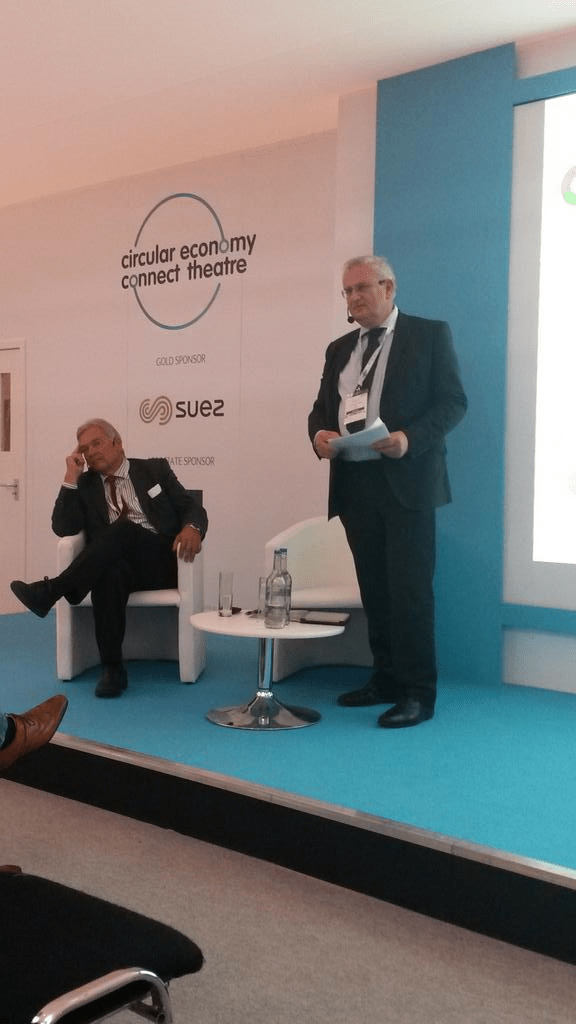Speaking at the RWM Show today (September 16), Karl Falkenberg, the Commission’s outgoing director general for environment, hinted that the upcoming European Commission’s circular economy package would push separate collections as the best collection method.

He also criticised the UK’s reliance on refuse-derived fuel (RDF) exports and what he perceived to be its aversion to building domestic energy from waste infrastructure.
The European Commission keynote address, held as part of RWM’s Circular Economy Conference programme, was chaired by Steve Lee, chief executive of the Chartered Institution for Wastes Management (CIWM).
‘Peculiar’
Asked by Mr Lee for his thoughts on commingled collections, Mr Falkenberg said: “All of Europe minus the UK tells me that separate collection is best. It’s a very peculiar approach in the UK. It’s not for me to say how it’s done, what I would like to see is the outcome.
He added: “Recycling here is less than many countries on separate collection systems on the continent. The 37% municipal landfill rate is still very high compared to Germany, Denmark and Sweden which are approaching zero.”
However, some senior waste sector figures thought that Mr Falkenberg was a little unclear as to what he meant by commingling as he appeared in part to be suggesting that organic material needed to be kept separate from recyclables, which is usually the case in the UK.
Under UK TEEP regulations adopted at the start of the year, local authorities are expected to carry out separate recycling collections where possible. However, many councils have reasoned that it is not economically practicable to change methods.
Proximity
Mr Falkenberg continued that the European Commission would like to see each member state in Europe become more efficient in closing the loop on waste domestically by introducing a ‘proximity principle’.
And, while Europe was ‘grateful’ for RDF exports, he argued it was ‘more difficult to build a waste incinerator in the UK than a nuclear power plant’ – adding the public cared less about vehicle movements that cause more pollution than EfW facilities.
He said: “The less we have to transport it across borders the more efficient our circular economy will become. However this does not mean I think we should close markets.”
Mr Falkenberg’s comments sparked some debate, with one audience member claiming local authorities in the UK needed to produce their own waste and recycling targets as opposed to an EU-wide agenda set in Brussels.

Package
After the session, Mr Falkenberg spoke to letsrecycle.com about what the circular economy package might include when it is revealed in early December.
He confirmed that the Commission had not finished assessing the responses submitted to its consultation during the summer, but that some solutions have stood out.
“It’s a bit early I think my colleagues are still looking at the different solutions,” he said. “There has been a lot of support for reuse and remanufacturing and a separate collection system for recycling. I expect the Commission to reveal its policy options in early December 2015.”
Asked whether the EU would heed calls from some UK trade bodies for mandatory food waste collections, Mr Falkenberg appeared less optimistic.
He added: “It’s too early to say there would be something coming out, but the last Commission’s view was that this might not be the best option.”











Subscribe for free